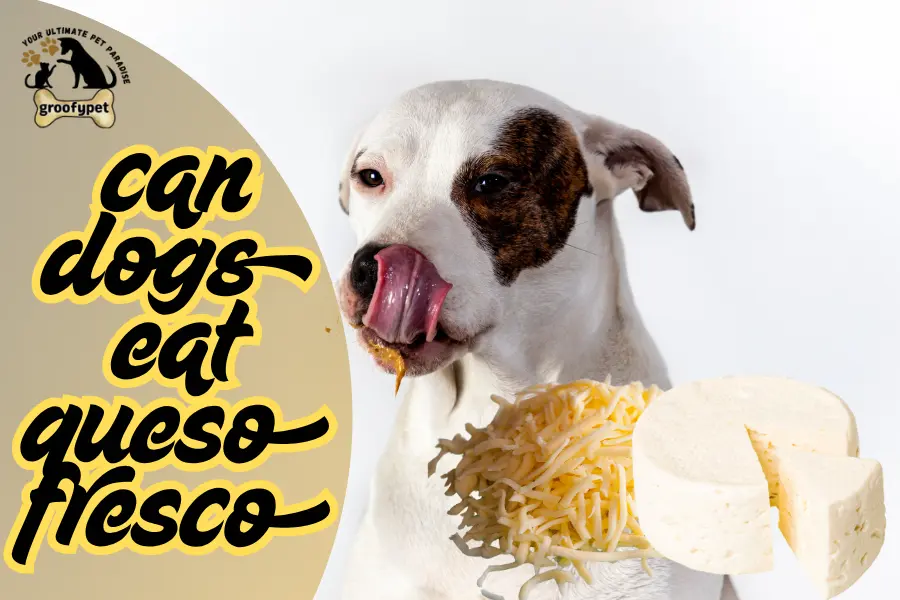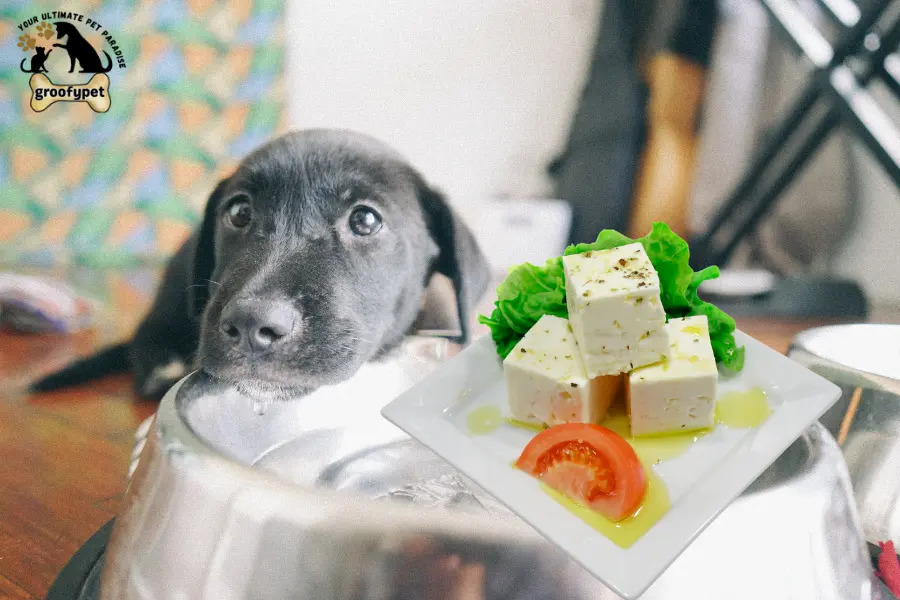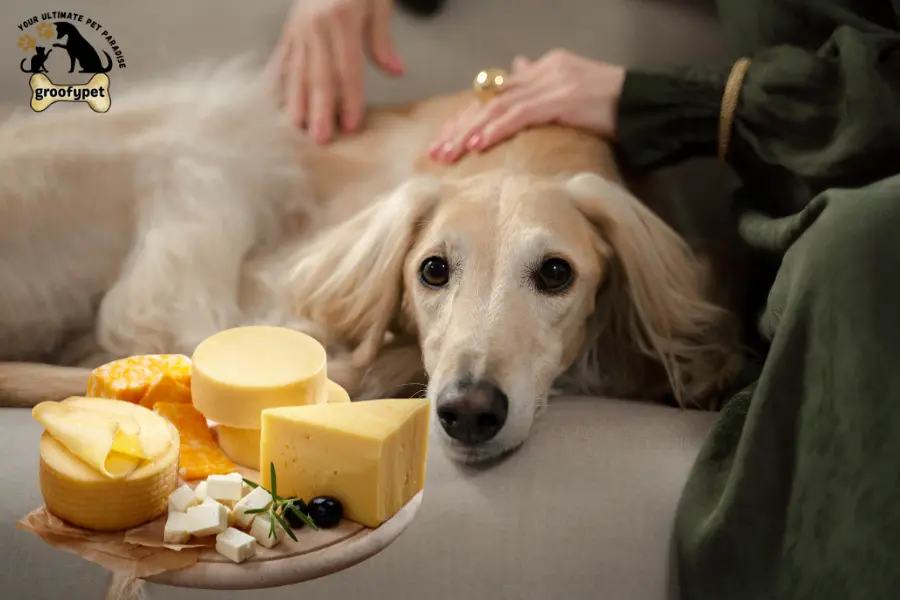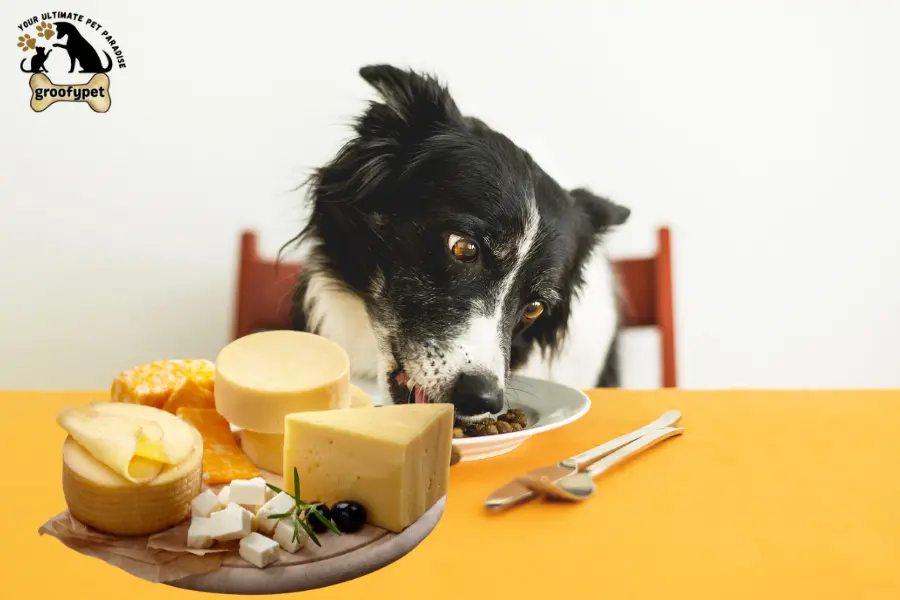
Queso fresco is a soft cheese made from cow or goat milk. It is common in many Latin dishes and known for its fresh taste. Many dog owners think this cheese is safe to share with their pets. The truth is, not all cheeses are good for dogs. Let’s find out if dogs can eat queso fresco without problems.
Your dog begs for a bite of your taco, and it has queso fresco on top. You pause and think, can dogs eat queso fresco or will it upset their stomach? The answer is not as simple as yes or no. Some dogs may handle it, while others may not. Let’s explore what you need to know before sharing this cheese.
It’s scary when your dog gets sick from something you gave them as a treat. Many pet owners worry after giving their dog cheese like queso fresco. Can dogs eat queso fresco safely or will it lead to stomach trouble? Knowing what’s safe helps prevent painful vet visits. Let’s talk about how this cheese affects your dog.
- Always know what your dog can and cannot eat before giving them queso fresco.
- Queso fresco has lactose, which can upset some dog stomachs.
- Check the label for salt, spices or added ingredients that may harm your dog.
- Make sure your dog can handle dairy before sharing this cheese.
- Ask your vet if you’re unsure whether queso fresco is a safe treat for your dog.
Dogs love treats and cheese is often a favorite. But not all cheese is safe for your furry friend. If you’re asking can dogs eat queso fresco? You’re not alone. This soft cheese may seem harmless but it can cause issues for some dogs. Let’s break it down and see what’s best.
Can dogs have queso fresco?
Yes, dogs can eat a small amount of queso fresco sometimes. It is not toxic like blue cheese. But it has fat and salt. Dogs often do not handle lactose well. If a dog has lactose intolerance, even a little can upset its stomach. Always start small and watch for signs.

Can dogs eat queso fresco?How
Yes, dogs can eat queso fresco, but only in small amounts. It is not poisonous to dogs. But this cheese has fat, salt, and lactose. These can upset a dog’s stomach. Some dogs can digest it well, while others may feel sick. Always give a tiny piece first and watch your dog for signs of trouble.
Benefits and risks of feeding queso fresco to your dog
Before giving your dog any type of cheese it’s important to understand how it might affect them. Queso fresco may seem like a harmless treat but not all dogs can handle it the same way. Some may enjoy a small bite.Others may get an upset stomach. Let’s look at the potential.
Potential benefits
- Tasty treat: Most dogs enjoy the taste of cheese so queso fresco.
- Rich in calcium: It has calcium which helps to keep bones and teeth strong.
- High in protein: Protein helps your dog build muscles and stay active.
- Useful for giving medicine: A tiny piece of cheese can help hide pills or tablets.
- Quick energy boost: The fat in cheese gives a little energy for active dogs.
Potential risks
Cheese can give dogs protein and calcium. These help build strong bones and muscles. Cheese also has vitamins that support their health. Many dogs love the taste, so cheese is a good treat. You can hide pills in cheese to make medicine time easier. It is a helpful snack if used the right way.
- Lactose intolerance: Many dogs can’t digest lactose properly. It causes gas, bloating or diarrhea.
- High fat: High fat levels can lead to weight gain or pancreatitis in some dogs.
- Salt: Extra salt can make dogs thirsty and harmful for their kidneys.
- Spices and additives: Queso fresco may include garlic and chili that are toxic to dogs
Risks Associated with Feeding Dogs Queso Fresco
1. lactose intolerance
Most dogs are lactose intolerant. This means their stomachs cannot break down milk sugar. If they eat queso fresco, they may get gas or loose poop. Some may even vomit. Always check for signs after giving cheese.
2. High fat and sodium
Queso fresco has fat and salt. Too much fat can make dogs gain weight. It may also lead to pancreatitis, a painful illness. Salt can make dogs thirsty and cause serious problems if they eat too much.
3. Bacterial risk
Soft cheeses like queso fresco can carry bad bacteria. This includes listeria. Dogs with weak immune systems can get sick from this. Always use cheese made from pasteurized milk to lower the risk.
How to safely give queso fresco to dogs?
1. Start small
Give your dog a small piece of queso fresco. Watch them after eating. If they feel fine, you can give a little more next time.
2. Watch for signs
Look for signs like gas, diarrhea, or vomiting. These may show that the cheese upset your dog’s tummy. Stop giving it if this happens.
3. limit frequency
Queso fresco should be a treat, not a daily food. Give it once in a while. Regular dog food should be your pet’s main meal.
4. Choose pasteurized, low-sodium options
Pick queso fresco made with pasteurized milk. Also, choose plain types with less salt. Avoid cheese with added spices or flavors.

Other cheese safe for dogs
Some cheeses are safer for dogs. Cottage cheese, mozzarella, and Swiss have less fat and lactose. These are easier for dogs to digest. Give small bites only. Use them as treats, not meals.
Cheese that dogs should avoid
Dogs should not eat blue cheese, feta, brie, or cheese with garlic or onion. These types can make dogs very sick. Blue cheese has a mold that is harmful to dogs. Always check the label before sharing cheese.
What to do if your dog eats too much queso fresco?
If your dog eats too much queso fresco, stay calm. Watch for signs like vomiting, diarrhea, or bloating. Give your dog fresh water and let them rest. If the signs get worse, call your vet right away. It’s better to be safe than sorry.
Tips: Can dogs eat queso fresco?
- Give only a small amount of queso fresco.
- Use it as an occasional treat.
- Choose plain and pasteurized cheese.
- Watch for signs of an upset stomach.
- Some cheeses are better than queso fresco.
- Avoid harmful cheeses with mold or spices.
Can puppies eat queso fresco?
Puppies have delicate stomachs. They are more likely to get sick from cheese. It is best not to give them queso fresco. Wait until they are older and talk to your vet first.
Queso fresco versus other dairy treats
Queso fresco is not the only dairy treat. Yogurt has good bacteria that can help digestion. Milk has more lactose and may cause more problems. Choose treats that your dog can handle better.
Homemade safe dog treats with cheese
You can make dog treats at home with cheese. Mix low-fat cheese with oats or pumpkin. Bake them into small snacks. Use these for training or rewards. Homemade treats are safer since you know what’s inside.
Signs your dog is lactose intolerant
If your dog has gas, loose poop, or vomiting after dairy, it may be lactose intolerant. These signs can show up within hours. Stop giving cheese if this happens. Always talk to your vet for advice.
Vet advice on dairy in a dog diet
Many vets say cheese is okay in small amounts. Dogs with pancreatitis, kidney problems, or allergies should avoid it. Ask your vet before adding any dairy to your dog’s meals. They can help you decide what’s best.
Also Read : Can dogs eat honey bun
Can you give a dog queso fresco?
can dogs eat queso fresco? Yes, you can give your dog a small amount of queso fresco. This soft cheese is not toxic, but it has fat, salt and lactose. Some dogs may get an upset stomach after eating it. Always start with a small bite and watch for signs of discomfort.

What happens if my dog eats queso?
If your dog eats queso it may have gas, diarrhea or vomiting. This depends on your dog’s size, health and how much cheese it ate. Queso is high in fat and salt, which can upset a dog’s stomach. If your dog eats a lot, call your vet for help.
Can my dog eat Mexican style cheese?
Most Mexican cheeses like queso fresco, panela, or cotija are not good for dogs. These cheese often have a lot of salt and fat. Some also contain spices or seasonings that are harmful to pets. It’s safr to skip them or ask your vet before sharing.
Are any cheese toxic to dogs?
Yes, some cheeses are toxic to dogs. Blue cheese, brie and cheese with garlic or onion can be very harmful. Blue cheese has mold that may cause seizures or vomiting. Always avoid cheeses with added flavors, mold or strong spices.
Frequently Asked Questions
Can dogs eat queso fresco every day?
No dogs should not eat queso fresco every day. It has fat, salt and lactose which upset their stomach.
What happens if my dog eats too much queso fresco?
Queso fresco can cause gas, diarrhea or vomiting. It may also lead to weight gain or pancreatitis. Call your vet if symptoms get worse.
Are there better cheese options than queso fresco for dogs?
Yes cottage cheese, mozzarella and Swiss cheese are usually safe. They have less fat and lactose which makes them easy to digest.
Can puppies eat queso fresco safely?
No puppies have weak stomach. It’s better to avoid giving them queso fresco until they are old. Ask your vet first.
Is lactose intolerance common in dogs?
Yes many dogs are lactose intolerant. Dairy products can cause bloating and vomiting. Always test with a small amount first.
Final Thoughts
Can dogs eat queso fresco? Queso fresco may look tasty but it’s not the best snack for your dog. A small bite now and then is usually fine, but it should never be a regular treat. Some dogs handle cheese well while others get an upset tummy.
Always watch your dog after trying something new. If you notice gas, diarrhea or changes in behavior it’s best to stop. Talk to your vet if you’re unsure. Your dog health comes first and there are plenty of safe treats to choose from.



